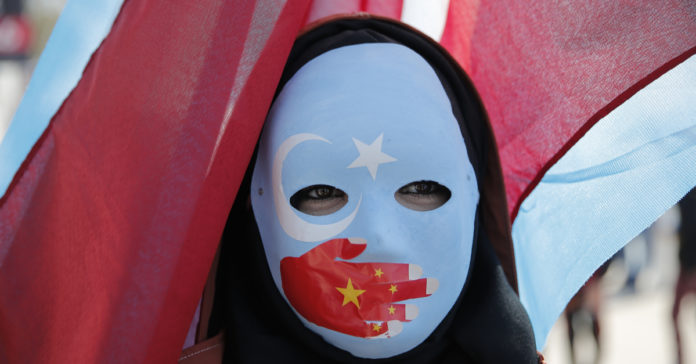An investigation by the Associated Press has found that the Chinese government is taking draconian measures to slash birth rates among Uyghurs and other minorities as part of a campaign to curb its Muslim population.
The campaign over the past four years in Xinjiang province is leading to what some experts are calling a form of “demographic genocide.”
According to the news agency, the campaign is ongoing even as the government encourages some of the country’s Han majority to have more children.
The AP investigation was based on government statistics, state documents and interviews with 30 ex-detainees, family members and a former detention camp instructor.
It found that the state regularly subjects minority women to pregnancy checks, and forces intrauterine devices, sterilisation and even abortion on hundreds of thousands. And even while the use of IUDs and sterilisation has fallen nationwide, it is rising sharply in Xinjiang.
The population control measures are backed by mass detention both as a threat and as a punishment for failure to comply, AP said. Having too many children is a major reason people are sent to detention camps with the parents of three or more ripped away from their families unless they can pay huge fines.
The result of the birth control campaign is a climate of terror around having children, according to the AP interviews. Birth rates in the mostly Uyghur regions of Hotan and Kashgar plunged by more than 60% from 2015 to 2018, the latest year available in government statistics. Across the Xinjiang region, birth rates continue to plummet, falling nearly 24% last year alone — compared to just 4.2% nationwide, statistics show.
Subscribe to our newsletter and stay updated on the latest news and updates from around the Muslim world!
Fifteen Uighurs and Kazakhs told the AP they knew people interned or jailed for having too many children. Many received years, even decades in prison.
The success of China’s push to control births among Muslim minorities also shows up in the numbers for IUDs and sterilisation.
In 2014, just over 200,000 IUDs were inserted in Xinjiang. By 2018, that jumped more than 60 percent to nearly 330,000 IUDs. At the same time, IUD use tumbled elsewhere in China, as many women began getting the devices removed.
Budget documents show that starting in 2016, the Xinjiang government began pumping tens of millions of dollars into a birth control surgery programme and cash incentives for women to get sterilised.
While sterilization rates plunged in the rest of the country, they surged seven-fold in Xinjiang from 2016 to 2018, to more than 60,000 procedures. The Uyghur-majority city of Hotan budgeted for 14,872 sterilisations in 2019 — about 34% of all married women of childbearing age.
“The findings of this report confirm what many Uyghurs have dreaded for the past three years: the Chinese government is trying to erase us,” said World Uyghur Congress President Dolkun Isa. “Not just our language, history, culture, religion, and ethnic identity, but for us as people. We have to be direct and honest about what we are experiencing. This is genocide.
“We grieve for all the Uyghur women who can no longer have children because the tyrannical and genocidal Chinese government cannot tolerate our existence. We mourn for all the Uyghur children who will no longer be born because the Chinese government considers our lives worthless compared with their national and geopolitical ambitions.”
AP said the Chinese Foreign Ministry referred multiple requests for comment to the Xinjiang government, which did not respond. However, Chinese officials have said in the past that the new measures are merely meant to be fair, allowing both Han Chinese and ethnic minorities the same number of children.


















